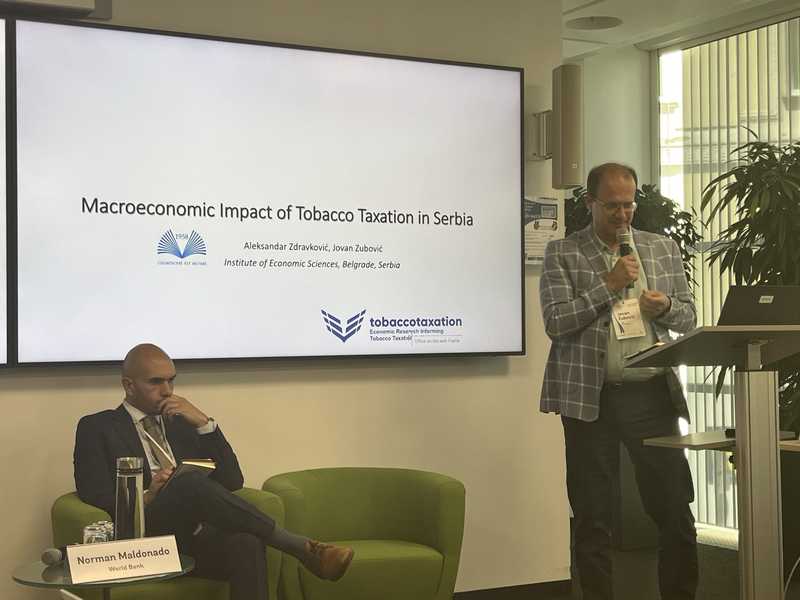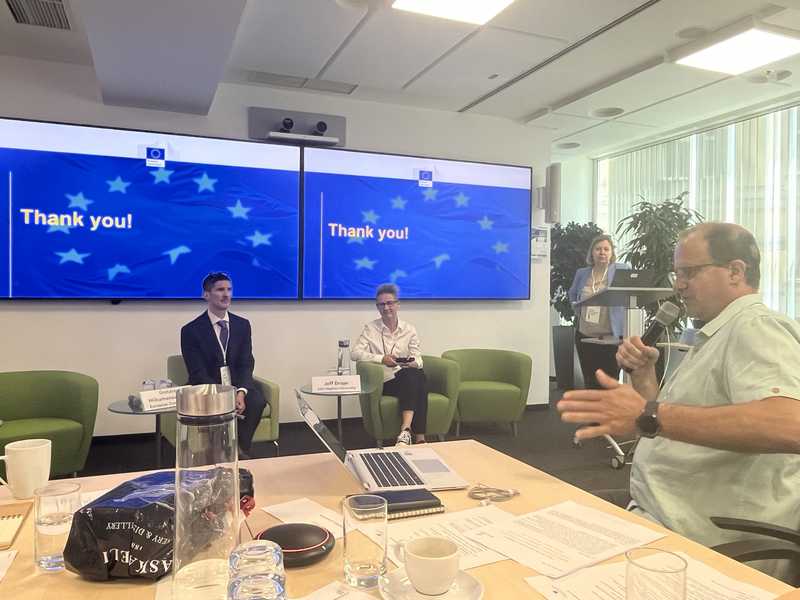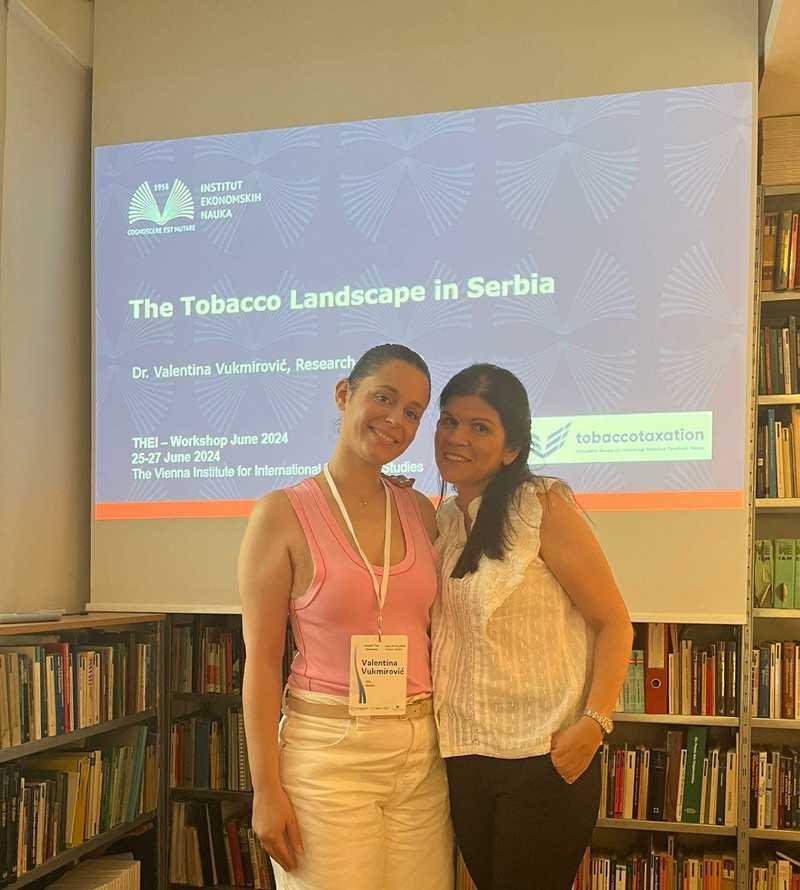IES research on tobacco taxation in Serbia presented at the international conference and workshop in Vienna
Members of the IES research team for the project "Tobacco Taxation in Eastern Europe," including Dr. Jovan Zubović, IES Director and Research Team Coordinator, Dr. Olivera Jovanović, and Dr. Valentina Vukmirović, participated in two events: the Conference on Health Tax Reforms held at the World Bank Office in Vienna on June 24-25, 2024, and the Health Taxation Workshop at The Vienna Institute for International Economic Studies (Wiiw) on June 25-27, 2024.
The conference was organized by the World Bank, The Vienna Institute for International Economic Studies (wiiw), and the Johns Hopkins Bloomberg School of Public Health. It brought together representatives from the World Bank, Bloomberg Philanthropies, European Commission, World Health Organization, Johns Hopkins Bloomberg School of Public Health, OECD, and policymakers and public health and tax officials from Bosnia and Herzegovina, Moldova, Montenegro, North Macedonia, Poland, and Kosovo*, and the research community. The conference emphasized that well-designed taxes on products such as tobacco, alcohol, and sugary drinks are among the most effective strategies for reducing the consumption of unhealthy products and, consequently, mitigating their harmful impact on people’s health.
At the Conference, Dr. Jovan Zubović presented research findings on the macroeconomic impact of tobacco taxation in Serbia. The study's key takeaway is that reallocating even 80% of additional tax revenues to spending on goods and services that reduce poverty and improve societal welfare results in positive net macroeconomic impacts on output, income, and employment.
During the three-day workshop at Wiiw, project team members presented their ongoing research in an open discussion with representatives of research teams from Albania, Bulgaria, Bosnia and Herzegovina, Georgia, Montenegro, North Macedonia, Poland, Romania, Turkey, and Ukraine.























